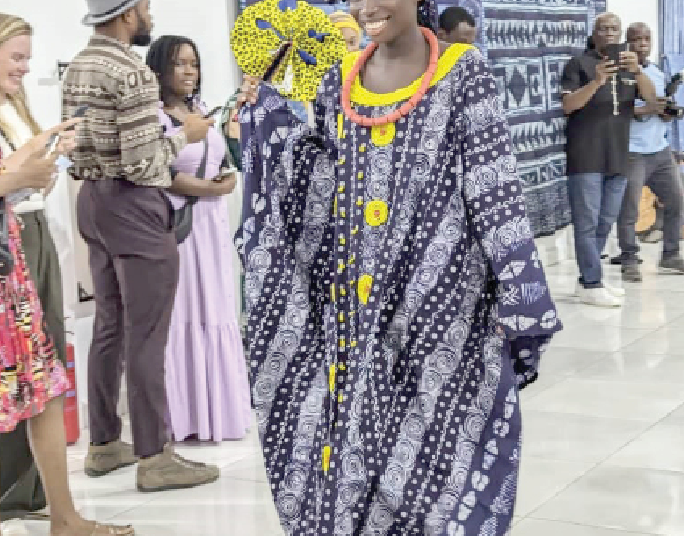Nike Art Gallery is seeking financial aid to support research on Indigo-Textile Cultures across Nigeria.
Founder of the Nike Art Gallery and Foundation, Nike Okundaye-Davis, popularly called Mama Nike, disclosed this at the opening of Blue Africa: Stories Woven In Indigo, at the gallery in Abuja, which held July 5 to August 4, 2024.
The exhibition curated by MAMAH Africa in collaboration with Spanish Museum of Anthropology, Spanish Embassy Nigeria, Nigeria Ministry of Arts, Culture and Creative Economy, and the gallery explored the history and cultures of Indigo Textile and traditional Indigo Dyeing techniques in five West African countries including Nigeria, Guinea Conakry, Cote D’Ivoire, Mali and Burkina Faso. It was aimed at celebration and preservation of indigo textiles and dyeing methods in Africa.
Okundaye-Davies, who owns a chain of galleries in Lagos, Osun and Abuja, said the exhibition which initially opened in Spain last year, had no Nigerian section. It took the intervention of the Spanish government in collaboration with Nike Gallery and the Nigerian ministry of arts and culture to host the exhibition in Nigeria.
In addition to providing the exhibition space, Nike Gallery also loaned the curators, the Indigo textile pieces ‘Adire’, ‘Amure’, ‘Ukara’ displayed at the Nigerian section. The gallery further held a runway fashion show featuring over 50 Indigo-textiles sourced from the 36 states of the federation. The tailored designs were made by the gallery’s young apprentices, and featured traditional, free-flowing, African styles, alongside European-styled long and short jackets.
Speaking at the event, Okundaye-Davis said as part of its philosophy of retrieving and giving back to mother nature, the gallery has an Indigo farm where it grows indigo plants – like beet root, purple onions, ginger, Dogonyaro roots among others used in dyeing Indigo textiles, in addition to a textile village where apprentices are enrolled in batches throughout the year to learn textile-dyeing and designs.
“The process (of traditional Indigo-dyeing) may be long, but it is worth it, because it is our heritage. We must pass this knowledge of natural dyeing which we are known for to our children.”
Similarly, the museum is working towards opening of a textile museum that will display a collection of textiles from the nation’s 36 states, alongside a book publication on the subject. The publication will consist of researched papers on various ethnic groups textiles written by Nigerians – of which anyone is welcome to apply. Hence, the gallery’s request for support to fund the research.
“We are looking for money to sponsor the researchers. If we get good. If not, we hope institutions like the Spanish Embassy among others can support us,” concluded Okundaye-Davis.
We’ve got the edge. Get real-time reports, breaking scoops, and exclusive angles delivered straight to your phone. Don’t settle for stale news. Join LEADERSHIP NEWS on WhatsApp for 24/7 updates →
Join Our WhatsApp Channel










